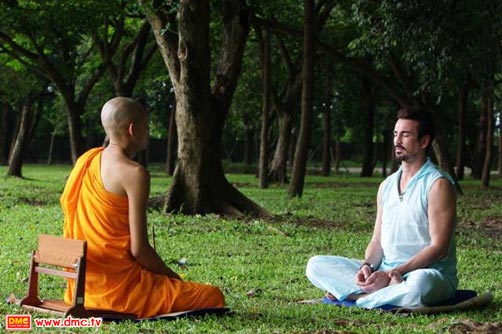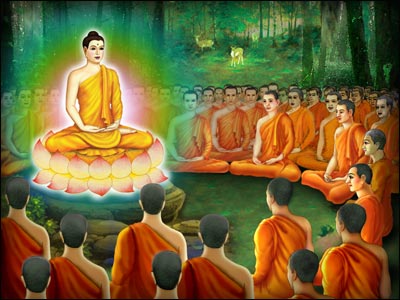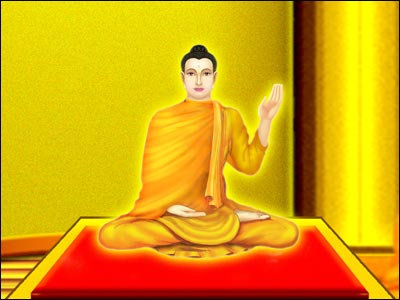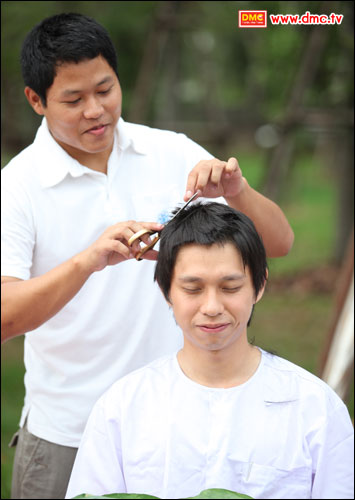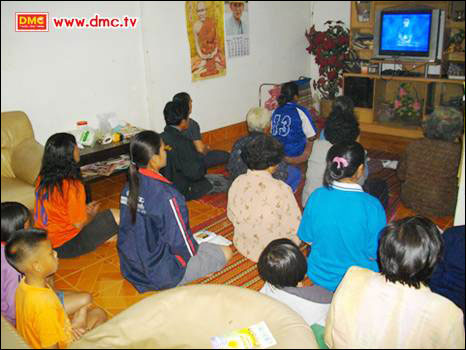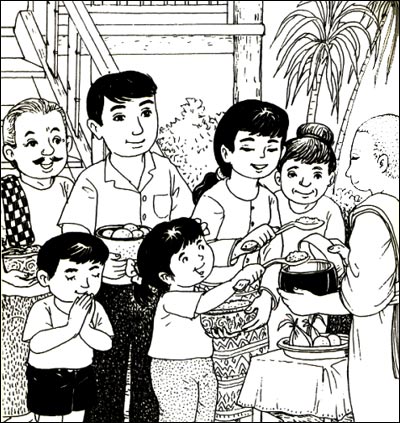MeditationMeditation for BeginnersDhammacakkapavattana Sutta: The Sermon#2Dhammacakkapavattana SuttaThis last metaphor clearly illustrates how no benefit can be found by indulging in sensual pleasure. All these dangers of indulging in sensual pleasures are the reason why the Buddha taught in the dhammacakkapavattana Sutta that Buddha taught in the Dhammacakkapavattana Sutta that those leading the monastic life must avoid the extreme of indulging in sensual pleasure.Furthermore, in the Mahadukkhakhands Sutta (The Greater Discourse on the Stems of Suffering) (M.i.83ff.), delivered at Savatthi, the Buddha expounds the dangers of sensual indulgence, in detail which exceeds even that of the Dhammacakkapavattana Sutta.“O! Monks! What is indulgence of the senses? The senses are five, namely: images seen with the eyes, sounds heard with the ears, aromas smelled with eyes, sounds heard with the ears, aromas smelled with the nose, savours tasted with the tongue, physical touch registered by the body. The indulgence of these five senses is of a nature to tempt us to attachment. O! Monks! The pleasures and enjoyment which come from sense contact are what we call the indulgence of the senses.O! Monks! What are the dangers of sensual indulgence? The people of this world earn their livelihood in many ways: for example, some are farmers, some run businesses, some tend dairy cattle, some are soldiers, some are civil servants, some are elephant trainers, some are horse trainers. No matter which way one earns one’s living, one has to endure hardship. In the winter one has to tolerate the cold while working. In the summer one has to tolerate the warmth while working. Sometimes one has to tolerate the humidity. One’s skin become chapped in the wind and the sun. Sometimes, other biting insects. Sometimes one is threatened by poisonous animals such as snakes. Sometimes one becomes emaciated because one lacks sufficient means of physical support.O! Monks! Whether one earns one’s livelihood by arts or by sciences, one cannot avoid the hardships imposed by nature. All these are the dangers of sensual indulgence the manifestation of suffering as we meet it in our lives all coming as the result of our wish to indulge the senses. Whenever a person strives to earn a living, to do business, but does not achieve the success he requires, he will be disappointed, laments that he deserved more after all his efforts, that it is not befitting that he should make a loss, be without benefit-but it is all due to in dulgence of the sense pleasures.Even though a person makes a success of earning his living and becomes wealthy, it is not an end to his suffering because now he must worry about how to protect his wealth from being taken away in taxes, taken away by robbers, damaged by fire, damaged by flooding, taken away by enemies – so his suffering continues.If it happens that his wealth is taken away in taxes, or stolen by robbers, or damaged by fire or floods, or frittered away by fraudulent enemies then that person will be sorrowful, suffering in body and mind, lamenting his loss with the realization that’ this wealth doesn’t really belong to me, it is out of my hands’. O! Monks! These are the dangers of sensual indulgence suffering that manifests itself as the result of the sense pleasures.that Buddha taught in the Dhammacakkapavattana Sutta that those leadingthe monastic life must avoid the extreme of indulging in sensual pleasure.O! Monks! Emperors fight one another, kings fight one another, Brahmins fight one another, householders fight one another, mothers fight one another, householders fight one another, mothers fight with their children, children fight with their mothers, fathers fight with their children, children fight with their children, children fight with their mothers, fathers fight with their children, children fight with their father, older siblings fight with younger siblings, big brothers fight with their little sisters, little sisters fight with their big brothers, friends fight one another – and all because of attachment to sense pleasures.When people (of various social positions) such as emperors, fight amongst themselves, they try to hurt one another with their fists, by shoving, by punching, by stabbing, with weapons – where either of the opponents might lose their life- all these manifestations of fighting are consequences of attachment to sense pleasure.O! Monks! Futhermore, there are those who take a sword and a shield, or bow and arrow, or a flaming torch, instruments of torture with poisoned tips, wage war on the battleground, shoot at their enemy, throw spears, stab their enemy with swords, leaving victims dead on the battlefield or leaving combatants mortally wounded. O! Monks! The waging of war, the fighting to kill or wound one another, all comes as a consequence of attachment to sense pleasure.O! Monks! Some warriors go to the trouble to erect defences of brick and mortar to stop their enemies being able to climb over, they fill their arsenals full of weapons. However, if the enemy should penetrate their defences, they will be killed with guns, arrows, spears or swords or hanged. The attacker attempting to climb the defences might have boiling cow dung poured over their heads, or have their heads chopped of with a sword, or be mortally wounded. O! Monks! All this manifestation of suffering comes as a consequence of attachment to sense pleasure.O! Monks! Furthermore, there are burglars who go from house to house robbing them, some force their way into a house and threaten or kill the householder, some are highway robbers, some commit adultery with the wives of other men. When any of these criminals are caught by the king, they are punished by whipping, caning etc..O! Monks! All this manifestation of suffering comes as a consequence of attachment to sense pleasure.O! Monks! When those who commit wrongdoings of body, speech or mind die, the body breaks up but their spirit remains and will be reborn in any of the four unfortunate (hell) realms: the hells, the realm of hungry ghosts[peta], the monstrous [asura] realms or as an animal. O! Monks! All this manifestation of suffering comes as a consequence of attachment to sense pleasure.O! Monks! To restrain oneself from enjoyment of the sense pleasures, to restrain oneself from enjoyment of the sense pleasures, to avoid attachment to the sense pleasures-both these are refuges from sense pleasures-both these are refuges from sense pleasure [kamanissarana] or in other words ‘Nirvana’.”It is for this reason that the Lord Buddha should want to start his sermon by instructing the ‘group of five’ that in dulgence of the senses is unsuitable, base, ignoble, without benefit, unsuitable for a Buddhist monk-and should be shunned, not indulged or prized.
ซีรีย์ที่เกี่ยวข้อง
Tags : #Meditation #Dhammacakkapavattana Sutta #sensual pleasure #Buddhist teachings #monastic life #mindfulness #sense indulgence #suffering #attachment #Nirvana #attachment #Buddhism #Dhammacakkapavattana #Meditation #Meditation Guide #meditation methods #Mindfulness #monastic life #spiritual teachings #Suffering





